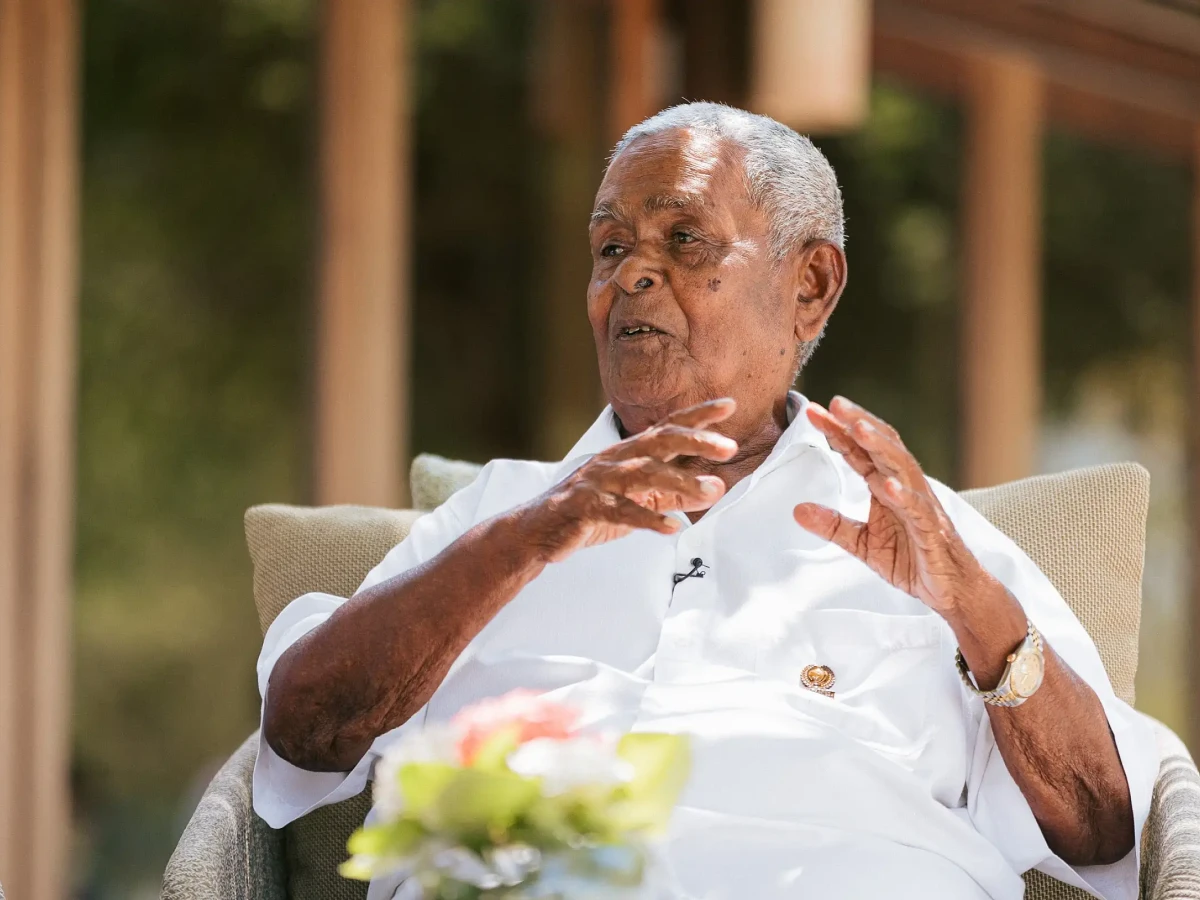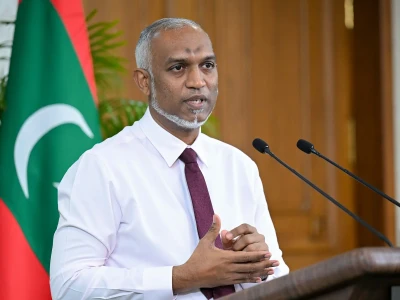
Tourism tycoon Mohamed Moosa urges immediate halt to foreign currency rules
Mohamed Moosa criticised the policy, highlighting the lack of industry consultation and the abruptness of implementation.
Top Stories
-
Govt cancels Kelaa resort tender for new bid with concessions
-
MMPRC attributes financial strain to losses under previous govt
-
UAE-based Jetex proposes to take over VIA's VIP terminal
-
Committee recommends govt proceed with MITDC liquidation
-
Committee warns of MMPRC bankruptcy amid financial struggles
Tourism tycoon Champa Mohamed Moosa has asked the Maldives Monetary Authority (MMA) to repeal the new rules formulated by the central bank for foreign exchange requirements for tourism businesses, calling it a "temporary band-aid" to fix the current debt crisis of the Maldivian government.
In three strongly-worded letters addressed to MMA Governor Ahmed Munawar on Tuesday, Mohamed Moosa through three of his tourism businesses -- Kuredu Holdings Pvt. Ltd., Komandoo Holdings Pvt. Ltd. and Champalars Holdings Pvt. Ltd. -- expressed deep concern over the recently introduced regulation on foreign currency.
Mohamed Moosa outlined a range of issues with the regulation, which he argues imposes "unfair and impractical" financial obligations on the tourism sector.
The regulation, introduced by MMA on October 1, mandates that tourism establishments deposit all foreign currency revenue into Maldivian bank accounts within a specific timeframe. Additionally, it requires a deposit of USD 500 per tourist in Maldivian Rufiyaa within three months of each guest's stay.
Mohamed Moosa criticised the policy, highlighting the lack of industry consultation, the abruptness of implementation, and the uniform approach applied across all resorts, regardless of operational size or market segment.
In his letter, Mohamed Moosa argued that the regulation threatens to create a "disastrous domino effect" on the Maldivian economy.
“The impositions introduced under the Regulation fail to take into account and consider the harrowing impact it has, not only on the businesses in the tourism sector – but the disastrous domino effect it will inevitably have on the Maldivian economy,” he wrote.
Mohamed Moosa emphasised that the regulation ignores the realities of running a resort business. He noted the challenge of meeting the $500-per-guest deposit requirement, which he described as rigid and lacking consideration for variations in guest stay durations.
"The one-size-fits-all approach introduced under the Regulation does not account for the operational realities of resort businesses, resulting in unfair financial constraint and undue burden on those in lower market segments," he stated.
Mohamed Moosa also highlighted that the regulation disregards binding debt obligations, noting that many resorts were developed with significant investment, much of which is yet to be repaid.
The letter also conveyed the broader implications of the regulation, which Moosa sees as detrimental to investor confidence. He warned of a potential slowdown in tourism investments, stating, “These additional financial obligations will erode profitability, deter new investments, and lead to a re-evaluation of the long-term viability of the hospitality industry in the Maldives. The loss of investor confidence will have damaging consequences, not only for the tourism sector but for the broader economic landscape of the Maldives.”
Mohamed Moosa concluded by urging the government to halt the regulation’s implementation and collaborate with stakeholders to create a policy that supports long-term economic stability.
“We strongly urge the government to suspend the Regulation with immediate effect and work with all relevant stakeholders to introduce a regulatory regime that aims to have a lasting long-term beneficial impact on the Maldivian economy as a whole,” he said.




